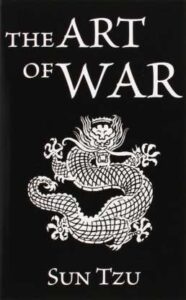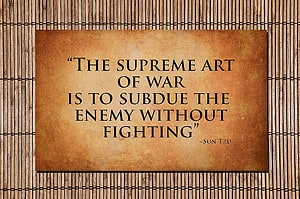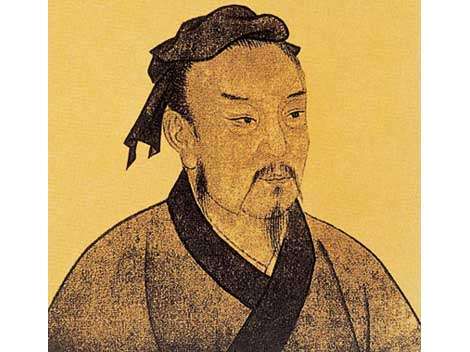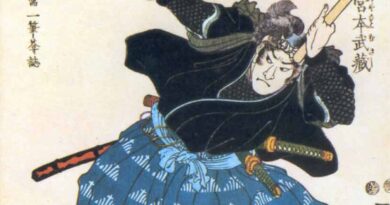“The Art of War” by Sun Tzu. What can be learned?
Introduction
The Art of War is an ancient Chinese military treatise written by Sun Tzu in the 6th century BC. It is one of the most influential and successful books on military strategy in history, and has been used by many military leaders and strategists over the centuries. The Art of War is composed of 13 chapters, each of which is devoted to a different aspect of warfare. It is written in a highly structured and concise style, and is designed to provide guidance to military leaders on how to successfully conduct warfare. The Art of War is still studied and applied today, and its principles are applicable to many aspects of modern life.
Analyzing the Philosophical Underpinnings of Sun Tzu’s
The Art of WarSun Tzu’s The Art of War is a timeless classic that has been studied and applied by military strategists, business leaders, and philosophers alike. The text is a collection of strategies and tactics for achieving victory in battle, but it also contains a wealth of philosophical underpinnings that can be applied to many aspects of life. In this essay, we will explore the philosophical underpinnings of Sun Tzu’s The Art of War and how they can be applied to modern life.

Sun Tzu’s philosophy is based on the idea of “winning without fighting”. He believed that the best way to win a battle was to outwit and outmaneuver the enemy, rather than engaging in direct combat. This philosophy is based on the idea that the most effective way to achieve victory is to use strategy and cunning rather than brute force. Sun Tzu also believed that the best way to win a battle was to understand the enemy’s strengths and weaknesses and use them to your advantage. He argued that the most successful generals were those who could anticipate their opponents’ moves and use them to their own advantage. Sun Tzu’s philosophy also emphasizes the importance of preparation and planning.
He argued that a successful general must be prepared for any eventuality and must be able to think ahead and anticipate the enemy’s moves. He also believed that a successful general must be able to adapt to changing circumstances and be flexible in their strategies. Sun Tzu argued that a successful general must be able to think on their feet and make quick decisions in order to gain the upper hand in battle. Finally, Sun Tzu’s philosophy emphasizes the importance of discipline and self-control. of understanding the environment, the enemy, and oneself. By applying these strategies to business, one can gain a competitive edge and achieve success. The first strategy is to understand the environment. Sun Tzu believed that one must understand the environment in which they are operating in order to gain an advantage. In business, this means understanding the market, the competition, and the customer. Knowing the strengths and weaknesses of the competition, as well as the needs and wants of the customer, can give a business an edge. The second strategy is to understand the enemy.

Sun Tzu believed that one must understand the enemy in order to gain an advantage. In business, this means understanding the competition. Knowing the competition’s strengths and weaknesses, as well as their strategies and tactics, can give a business an edge. The third strategy is to understand oneself. Sun Tzu believed that one must understand their own strengths and weaknesses in order to gain an advantage. In business, this means understanding one’s own strengths and weaknesses, as well as their strategies and tactics. Knowing one’s own strengths and weaknesses, as well as their strategies and tactics, can give a business an edge. By applying Sun Tzu’s strategies to modern business, one can gain a competitive edge and achieve success. Understanding the environment, the enemy, and oneself can give a business the knowledge and insight needed to succeed.He argued that a successful general must be able to remain calm and composed in the face of adversity and must be able to make decisions without being swayed by emotion. Sun Tzu argued that a successful general must be able to remain focused and disciplined in order to achieve victory. The philosophical underpinnings of Sun Tzu’s The Art of War can be applied to many aspects of modern life.
The idea of “winning without fighting” can be applied to business, politics, and even personal relationships. The importance of preparation and planning can be applied to any endeavor, from starting a business to planning a vacation. The emphasis on discipline and self-control can be applied to any situation, from managing a team to dealing with difficult people. Sun Tzu’s philosophy can be applied to any situation in life, and it is a timeless reminder of the importance of strategy and planning.Exploring the Impact of Sun Tzu’s The Art of War on Military History Sun Tzu’s The Art of War is one of the most influential works of military strategy in history. Written in the 6th century BC, it has been studied and applied by military leaders and strategists for centuries.
The Art of War is a comprehensive guide to the strategies and tactics of warfare, and its influence on military history is undeniable. The Art of War is divided into 13 chapters, each of which focuses on a different aspect of warfare. Sun Tzu emphasizes the importance of understanding the enemy, the terrain, and the environment in order to gain an advantage in battle. He also stresses the importance of deception and surprise, and the need to be flexible and adaptable in order to succeed. Sun Tzu’s ideas have been applied in many different ways throughout history.
In the 16th century, the Japanese warlord Oda Nobunaga used Sun Tzu’s strategies to great effect in his campaigns against rival warlords. In the 19th century, the Prussian military adopted Sun Tzu’s ideas and used them to great success in their wars against Austria and France. Sun Tzu’s influence can also be seen in the modern era. In the 20th century, the United States military studied and applied Sun Tzu’s strategies in the Vietnam War. In the 21st century, Sun Tzu’s ideas are still being studied and applied by military strategists around the world.
The impact of Sun Tzu’s The Art of War on military history is undeniable. Its strategies and tactics have been studied and applied by military leaders for centuries, and its influence can still be seen in the modern era. Sun Tzu’s ideas have shaped the way wars are fought and won, and his work continues to be an invaluable resource for military strategists.How Sun Tzu’s Strategies in The Art of War Can Be Applied to Modern BusinessSun Tzu’s strategies in The Art of War have been used for centuries to gain an advantage in battle, and they can also be applied to modern business. Sun Tzu’s strategies focus on the importance



